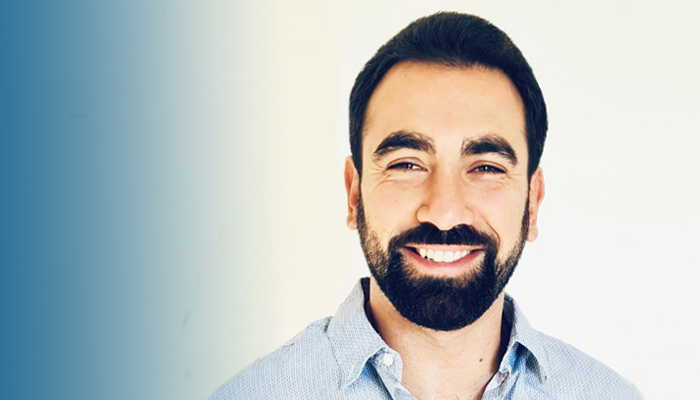HOW CAN WE HELP YOU? Call 1-800-TRY-CHOP
In This Section
STAT Wunderkind "Blazing New Trails:" Q&A With Mark Yarmarkovich, PhD

Mark Yarmarkovich, PhD, is a 2021 STAT Wunderkind.
shafere1 [at] chop.edu (By Emily Shafer)
Editor’s note: A hearty congratulations to Mark Yarmarkovich, PhD, for being named a 2021 STAT Wunderkind! Each year, STAT, a news site that reports on health, medicine, and the life sciences, names its STAT Wunderkinds, the next generation of scientific superstars, who are selected from hundreds of nominations across North America. The Wunderkinds are “on the cusp of launching their careers, but not yet fully independent,” and “blazing new trails as they attempt to answer some of the biggest questions in science and medicine,” according to STAT. Dr. Yarmarkovich is a senior scientist in the Maris Laboratory, and his research focuses on CAR T cells and their application in the treatment of rare and aggressive cancers. We asked Dr. Yarmarkovich to discuss his research journey and his future research goals.
How did you find your way to studying CAR T therapy? What interests you about the field?
The path that led me to CAR T cells starts with my early experiences as an undergraduate when I first learned about engineering antibodies for therapeutic purposes, particularly against cancer. I was on track to enter medical school to become an oncologist, but I was particularly drawn to this form of therapy as antibodies had already evolved to solve the issues of precision targeting that is essential to cancer therapeutics.
I decided to stray from my plans of becoming an oncologist, as I was fascinated by this field and thought this was an area where I could have impact. I was able to get an internship at Genentech, where antibody engineering was pioneered, and decided to join a rotational program focused on developing the next generation of antibody therapeutics.
When I saw the work being done at Penn/CHOP with CAR T cells, I was compelled by the idea of combining the specificity of antibodies with the potency of T cells. My interest in the field is rooted in a fascination with the immune system and how to deploy the principles of immunity safely and effectively against cancer. The work I do challenges me and takes advantage of skills I have built across various disciplines that I am interested in. Ultimately, what drives my work is my belief these therapies have great potential to help cancer patients.
What do you think is the most important research finding you’ve made in your career thus far, and why?
I am most excited about the methods that we are developing for targeting new classes of tumor targets (non-mutated intracellular cancer drivers) that I think can significantly expand the applications of immunotherapy to a much larger set of cancers. Also, the technology to target these cancer drivers across patients with different HLA types will open the ability to expand the groups of patients eligible for these therapies, including ethnic groups who are currently underserved.
What in your current research are you most excited about, and why?
I’m very excited about moving our current CARs into clinical trials, expanding this class of therapies into other lethal cancers, and developing new technologies that will result in better immunotherapies.
What are your long-term research goals?
My long-term goal is to help enable the treatment of any cancer patient with immunotherapy. I’m aiming to help develop a suite of technologies that will allow the identification of tumor-specific targets in any tumor and processes for engineering target-specific immunotherapies specifically suited for each patient’s cancer.
How has CHOP supported your research/career path? What makes it such an ideal place to conduct such groundbreaking research?
It’s been an absolute privilege to work with John Maris, MD, who has been such a supportive mentor through all stages of this project. Dr. Maris allowed me to get this project off the ground in his lab when it was just a high-risk idea and supported the expansion of this work in so many directions since then.
CHOP has developed an excellent certificate program in Cell and Gene Therapy that I completed last year and is investing in translating our work by funding the pathway of our CARs into clinical trials through the Cell and Gene Therapy Collaborative Acceleration Grant. CHOP also is investing in more upstream research with the recent recruitment of Nik Sgourakis, PhD, whose work is highly complementary to ours in characterizing the molecular basis of immune interactions that we hope will inform the development of future therapies. I think that the investments CHOP is making in these efforts will ultimately yield better therapies for more patients in the years to come.


